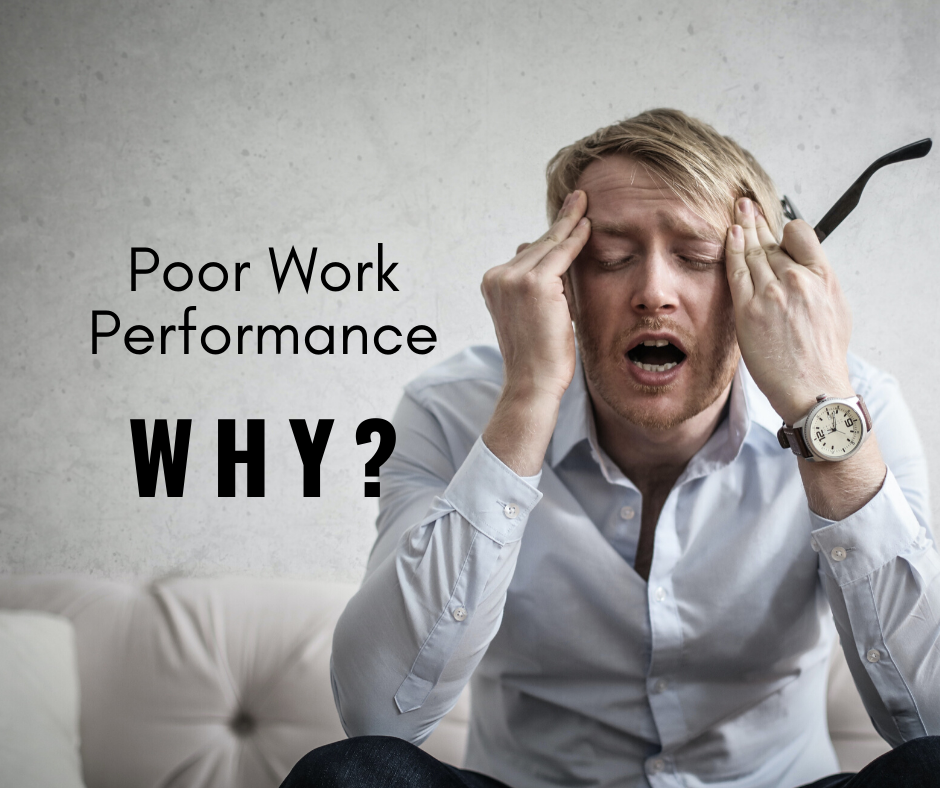When an employee cannot reach or maintain the work standards that’s required of him or her, we call it poor work performance. In this article we’ll look at the many different causes that can have an affect on an employee’s performance.
Two things have a direct influence on an employee’ performance:
- The ability of an employee to perform, and
- How willing the employee is to do the job.
When we talk about ability, we look at how competent the employee is, whether they have the expertise and whether they have all the right resources to do the job.
On the other hand, when we talk about how willing an employee is, we look to see how keen and how dedicated they are towards the job.

For any of your employees to do a job at the standards you require, he or she must, first and foremost, have the ability to do this work. Because if they don’t have the ability to do the job, it doesn’t matter how keen or how dedicated they are, it won’t get done.
There’re lots of reasons why an employee may be a poor work performer. But it’s up to you to make sure you truly understand what the underlying cause is. You have to find out whether it’s a result of a lack of ability or a lack of willingness to perform. Otherwise you may never resolve the problem. It’ll most probably get even worse.
Lack of ABILITY as a Cause of Poor Work Performance
When we look at the ability of an employee to do a job, the reasons why they may be performing poorly may be any of the following:
- Lack of training
- Not qualified
- Inexperience
- Task is too difficult or too demanding – incapability
- Low on skills or knowledge
- No aptitude
- Not enough support or supervision
- Insufficient resources or materials
Lack of WILLINGNESS to Perform
There’s a whole host of reasons why an employee may not be willing or dedicated to do the job. Here are some of the more likely causes:
- Boredom – job is not stimulating e.g. very repetitious
- Bad match – not suited to the job
- Personal problems (relationships, financial, illness, bereavement etc)
- Alcohol or drug addiction
- Work related stress (work overload, poor management/mistrust)
- Low salary – feeling undervalued
- Lack of recognition
- Ill health or injury
- Wrong attitude
- Incompatible – doesn’t ‘fit in’
- Anxiety – especially about the Corona virus pandemic
- Job security – e.g. retrenchments
This gives you an idea of the many causes that may result in any one of your employees being a POOR WORK PERFORMER. Now that you know this, you’re ready to take the next step: learning how to successfully identify the cause and then fix the problem properly.
If you enjoyed this article, why not get FREE updates in your inbox once a month…SEE THE BOX BELOW THIS ARTICLE to subscribe. You’ll get valuable advice on all employee matters on a monthly basis.
